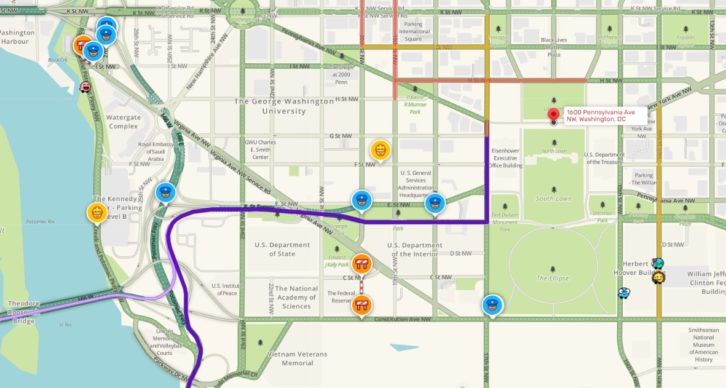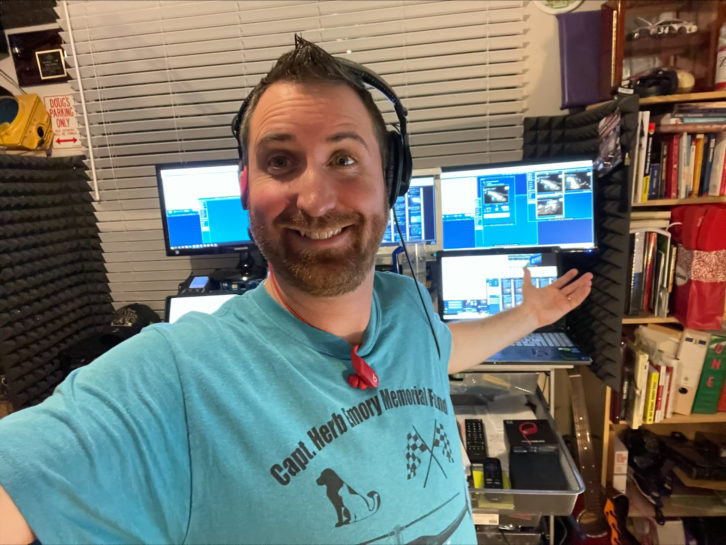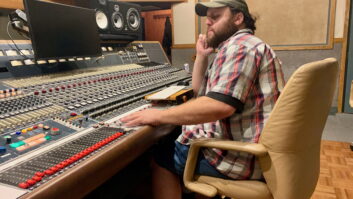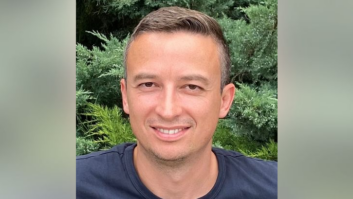Before smartphones and their map apps became almost universal, drivers in major cities like Los Angeles and Atlanta relied on radio traffic reports to find delays and alternate routes to bypass those delays.
Flying into Atlanta’s Hartsfield Jackson airport, I’d look to set a push button for WSB (95.5 FM/750 AM) and listen for reports from the late Captain Herb Emery in the Skycopter to get me around I-285 toward the “Big Chicken” quickly and safely.
Arriving at LAX, I’d tune the radio to KNX (97.1 FM/1070 AM) and I’d listen for Jim Thornton for advice on avoiding the SigAlerts and police chases that pop up on LA Freeways. So did a lot of other drivers.
Now some of those drivers rely mostly on the Waze app. I have it on my phone as well. The question arises: Does Waze make traffic reporting on the radio redundant?
The app for iOS and Android devices relies on crowd-sourced reports from users in the same vicinity to notify other users of construction, accidents, traffic backups and more.
It gives the information, but the driver must decide how to process it. If the driver is not familiar with the area, wrong choices may result.

Waze notifications also depend on the accuracy of those drivers or others reporting through the app. Sometimes, those notifications lag. At one time, Waze had a Waze On Air app and a WAZE for Broadcasters program, as Radio World reported previously, but neither is active any longer. Waze does encourage broadcasters to use its live map to monitor traffic conditions or embed that map on their station website.
Cool tool (among several)
Traffic reports are still important at WSB and KNX. Waze is a part of their toolbox, but it is not the major source of information.

Doug Turnbull reports on Atlanta-area traffic for WSB radio and flies in the Skycopter for WSB(TV). “We may get leads (from Waze) on where there might be something from a crowdsourced incident, but we then go and try to confirm that ourselves,” he said.
The station also gets information from listeners, police agencies and the Georgia Department of Transportation’s network of cameras, which can be accessed remotely from the WSB traffic center.
“We released our WSB Triple Team Traffic Alerts app in 2017, which we populate with traffic incidents that we curate. We record a traffic report attached to each one that plays automatically when someone running the app drives near it. We positioned this in Atlanta as the smarter alternative to Waze, since we are traffic experts and are goalies of all that information out there.” The app, the on-air reports and the Skycopter are monetized with sponsorships.
[Sign Up for Radio World’s SmartBrief Newsletter]

Brian Douglas is an anchor and traffic reporter for Los Angeles’s KNX. You’ll also find him in the skies over the Southland’s freeway system.
“Some listeners do use Waze or Google Maps, but ultimately they want to hear what the issue is from a live person,” he said.
“That’s the advantage we have over the traffic apps. They’ll tell you that there’s a crash ahead and that the drive slows and maybe an alternate; but listeners do want to know the details of why the drive isn’t moving. A live person can tell you the exact details and give you alternates that a computer algorithm really can’t.
“Waze can only show you so much, and used as one of many tools, it can be beneficial. It’s not good to only use Waze as the info isn’t detailed enough. Reports from our tipsters that call in — and they call in a lot — are much more useful,” he continued.
“Ideally if I can have three sources of info for every incident, that’s the best. I use info from our tipsters that actually drive by, California Highway Patrol info, sometimes the Citizen App and Quickmaps from CalTrans,” the California Department of Transportation.”
Turnbull offered advice for would-be traffic reporters. “Put yourselves in the mind of the commuter. Say things how you would want to hear them and talk about what you would want to hear about. Just listing crashes and stalls and sounding like a traffic report isn’t good enough.
“Don’t settle. Keep digging. This is the heartbeat of local radio, and almost everyone cares about traffic.”







